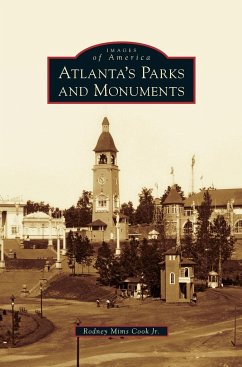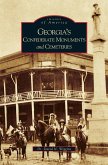Since the city's beginnings after the War of 1812, Atlanta has had a tradition of building with a regard for becoming a world-class metropolis. Before being burned by Union general William T. Sherman in 1864, the city's appearance was described by noted European architect and urban planner Leon Krier as "looking like London in the 18th century." Atlanta was surrounded by estates and plantations, and many of the plantation builders were influenced by Greek and Roman architecture. The argument of slavery to the contrary, builders saw Greek temples as symbols of democracy and, as a result, embraced Greek and Roman revival architecture as the dominant national style. Great monuments followed in this tradition to the letter in the capital of the South.
Hinweis: Dieser Artikel kann nur an eine deutsche Lieferadresse ausgeliefert werden.
Hinweis: Dieser Artikel kann nur an eine deutsche Lieferadresse ausgeliefert werden.








